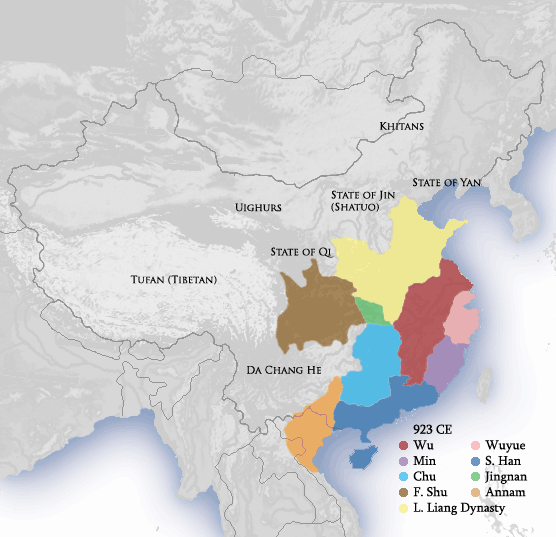I'm not convinced Seljuk Muslims ruling China would spread their religion outside of certain circles. It's too different from Chinese beliefs and they'd have to make many compromises on the beliefs of their Islam.
Depends on when and where. The Chinese generally had no problem with them as long as they obeyed the government, paid taxes, and didn't cause conflict. But there are
several incidents where the Chinese massacred Muslims and the Yuan and Qing dynasties in particular seem to have been generally anti-Muslim (although both tolerated the religion).
And Confucianism was definitely a religion. Confucian commmentaries on the I Ching were used as religious guides and Confucianism itself has plenty of metaphysical aspects such as obedience to Heaven.
In 961, the first Song emperor appointed Ma Yize, an Arab from northern Yemen, as the head of the imperial Observatory.
In 1070, 5,000 Bukharans were brought in by teh song to fight the Khitan, lead by Su fei-erh.
Pu Shougeng was an Arab or Persian and the Song dynasty's Superintendent of Maritime Trade in Quanzhou in the mid 1200s.
The Yuan Dynasty is known for its use of Persians to rule over the Chinese majority. Up until the Ispah rebellion, at which point the Yuan turned fully against them, since rebellions were unacceptable.
The Ming had many powerful Muslim generals and commanders, with a large number of Muslims being some of the last loyalists of the Ming. But the Ming isolation policy stopped Muslim immigration and Sinicized the Muslims.
In the Qing, there were major Muslim revolts: like Dungan and Panthay. Where potentially millions of Muslims died. But this was limited to the west and didn't affect the Muslims of the east.
Muslim generals in service of the Qing actually put down many of these rebellions. Who then became the last Qing loyalists, the renown
Kansu Braves during the Boxer Rebellion. Who were in charge of protecting the imperial capital, the Forbidden City itself against the Europeans and were renown for their bravery.
- Kaiser Wilhelm II actually requested Caliph Abdulhamid ii to tell the Kansu Braves to stop fighting.....
Finally, after the loss of the Battle of Peking in 1900, the Muslims
guarded Dowager Empress, Cixi, Guangxu Emperor and the Imperial Court in their escape to Xi'an.
In other words, they were the
Most Trusted And Most Loyal Forces to the Qing in its final days.
Then the Ma clique is also well known. With the Kuomintang Islamic insurgency being among the last nationalist loyalists on the mainland...
Finally emperor Hongwu himself wrote a hundred word eulogy in praise of the prophet Muhammad...



